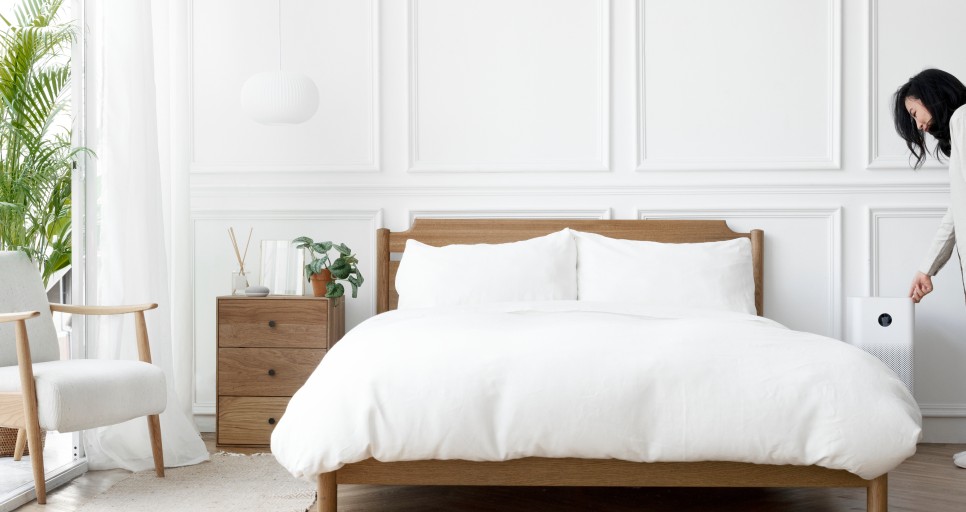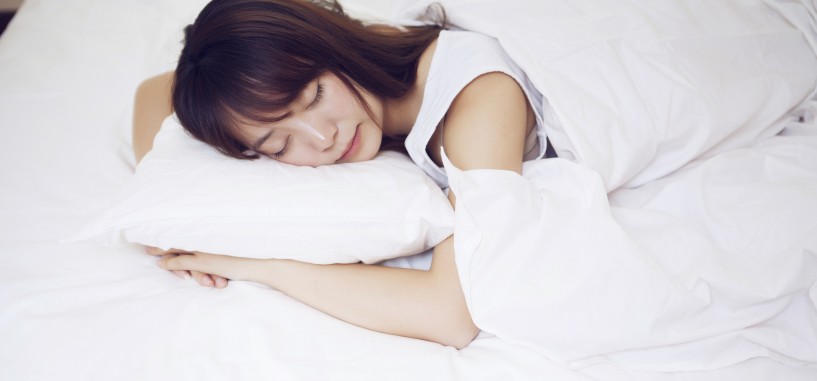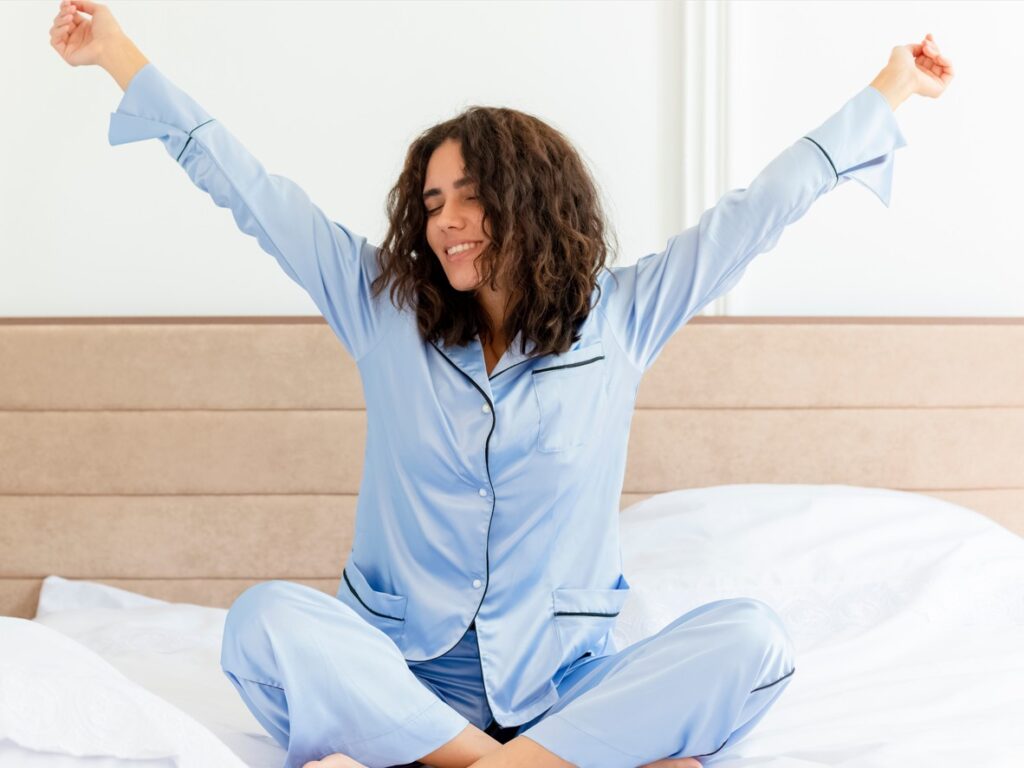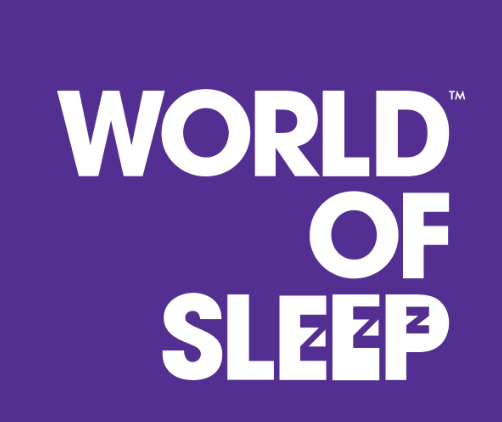In the present times when there is increasing focus on healthy lifestyle, quality sleep has emerged as an important tool for promoting overall physical well being. Despite knowing the importance of sleep, many consumers still struggle to get a restful night. For mattress manufacturers, this presents both a challenge and an opportunity to align product innovation with the evolving science of sleep.
Sleep is not a luxury but a biological necessity and it is important for overall well-being. In fact, one third of human life is spent on sleeping. So, it is imperative that that you sleep well as it can rejuvenate your body and help you stay alert, active and concentrate. However, most of the people do not get the required hours like 8-9 hours of sleep due to various reasons like stress, more working hours, mobile addiction or various other reasons. Dr Ravindra PN, Additional Professor, Centre for Consciousness Studies, Department of Neurophysiology, Nimhans, says, “Lack of sleep can affect everything from oral health and immunity to mental clarity and emotional balance to chronic disease prevention. There are various ways in which you can achieve a good sleep and for that understanding the sleep science is essential.” Here, the role of mattress also assumes importance. Mattress brands that have understood this science are innovating beyond comfort and moving towards providing holistic and health-enhancing experiences to their customers for promoting quality sleep and overall wellness.
Well, talking about the sleep science, then the first thing to know is the four stages of sleep as all the repair and rebuild takes places in these stages only. In fact, mattress manufacturers are also taking into account these stages to come up with products that ensure a good night’s sleep.
The architecture or stages of sleep
Sleep is a very complex process that occurs in cycles. Each cycle consists of several stages. These stages include NREM Stages 1–3 and REM. Each of these four cycles lasts for about 90 minutes. Most of the people encounter 4-6 of these cycles every night. Here is a look at these stages
The bedroom should be cool and dark, free of screens, and provide a comfortable environment with a good mattress.
Light Sleep (NREM Stage 1)
When you lay down and close your eyes to sleep, you enter into this phase where a shift from alertness to sleep takes place. Gradually, your brain starts to slow down and body is relaxed. This phase lasts only for a few minutes.
Deeper Sleep (NREM Stage 2)
In the entire sleep cycle, you are in this phase for a majority of time. It is a link between light sleep and deeper sleep. In this phase, the temperature of your body begins to decline and your heart rate also slows down.
Deep Sleep (NREM Stage 3)
This stage is very important for overall physical recovery and growth as a lot of restoration and repair takes place here. This is because your muscles are relaxed, tissues are repaired and immune system is strengthened.
REM Sleep
In this stage, most of us see dreams. Our brain becomes more active in the REM sleep, eyes move rapidly and body undergoes various physiological changes like an increased breathing rate and heart rate. REM sleep is essential for cognitive functions like memory, learning and emotional regulation.

As science uncovers more about the nuances of how and why we sleep, mattress manufacturers have a golden opportunity to design products that align with human biological needs creating sleep environments that actively support optimal health and deliver better rest.
Well, most of the times, disruption in these stages is caused due to environmental discomfort which reduces cognitive function, mood stability and immune response. A study conducted by the Agewell Foundation in 2023 which involved over 5,000 individuals across 20 states of India revealed that more than half (around 52 per cent) experienced difficulty in achieving deep sleep. The report also stated that overall 69.8 per cent of respondents said that they slept for less than six hours a day, while 51.68 per cent said they struggled to get deep and sound sleep. So, what are these environmental factors that affect sleep? Well, let’s delve into them in the next section and discuss how mattress manufacturers are addressing these issues.
Environmental factors that affect sleep
A quality sleep depends on many factors including the bedroom environment as well as the mattress. Dr Ravindra says, “If your bedroom is optimised for the light, noise levels, temperature and comfort among others, you sleep better.” Dr. Rekha MS, Professor, Psychology in Psychiatry, adds, “Typically, the bedroom should be cool, dark and with no screen and posses a comfortable environment with a good mattresses. So that whenever you see that bed or the room, you should feel like sleeping.” Thus, this makes it important that we enter into the world of sleep and look at the environmental factors that affect sleep.
- Temperature: Thermal discomfort in the bedroom generally results in fragmented sleep and has a huge impact on the quality of sleep. Particularly, warmer temperatures result in more wake-ups and poor deep sleep. As per most of the sleep experts, the ideal sleep temperature range should be between 15 to 20 degrees Celsius (59 to 68 degrees Fahrenheit).
- Light exposure: Light is another one of the most important factors that affect sleep and greatly helps in creating a good sleep environment in the room. We all know that it is easier to sleep in the dark but actually, the relation between light and sleep is much deeper. In fact, light has a striking effect on your sleep and can even regulate the body’s sleep-wake cycle. Typically, bright and electrical lights both before and during sleep suppresses the production of Melatonin due to which you are not able to have a quality sleep and even wake up at the night. Kirit Singhvi, Principal Designer and Founder, A Crown Creation, notes, “Minimal lights should be used in the bedroom. Generally 3000K lights in the bedroom are preferred as they create a warm, inviting and relaxing atmosphere.” Overall, ensuring that the bedroom has soft lights can help one sleep peacefully. In addition to this, in the context of light, we also need to understand that exposure to blue light before sleep can affect your sleep very negatively. Typically, smartphones, televisions and other devices with screens produce artificial blue light that can hamper your sleep to a very large extent. The 8th edition of Great Indian Sleep Scorecard (GISS) 2025 of Wakefit.co revealed that about 84 per cent of their respondents used their mobile phones just before bedtime, which lead to delayed sleep onset and fragmented rest. In this regard, Sleep Specialist Dr. Ramya Naveen, notes, “Keeping your phone or any other blue screen away one hour prior to your sleep can help decrease the chances of sleeplessness. It will help your brain to cool down easily and you can get in to the resting mode the moment you put yourself onto the bed.”
- Noise levels: While noise in the bedroom can disrupt REM and deep sleep, soothing music or sound can help in sleeping well. This is in lieu of the fact that the brain processes sounds, not only while you are falling asleep but even when you are sleeping. As a matter of fact and based on various studies, music helps in regulation of the hormones including the stress hormone Cortisol whose elevated levels can increase alertness and thus lead to poor sleep. By calming parts of the autonomic nervous system, thereby leading to slower breathing, lower heart rate and reduced blood pressure, music can improve sleep considerably. Further, soft and soothing music in the bedroom can also put off various noises that you hear in the night like noise from the roads, passing airplane or neighbours. In order to counter such noises, white noise machines or acoustic insulation can be chosen.
- Colours in the bedroom: Colours can greatly affect the mood which can actually affect your sleep. As per the colour psychology experts, some colours put you at ease while others make you alert. The best colours for sleep are pastel shades and neutral colours as these colours have a calming effect on the body and thus, reduce stress and soothe the nervous system. Sonal Bhandari, Principal Architect, Node Design Studio, says, “Always, neutral colours like Grey, Beige and the like are chosen for the walls as such colours don’t disturb the eye.”
- Smell: Smell is one of the strongest senses amongst all and directly impacts how we feel while going to sleep. There are certain smells that create a physical change in the body and help you to relax. For example, Lavender and sandalwood scents lower your heart rate, decrease your blood pressure and reduce anxiety, therefore puts you in a more relaxed state. In addition, Vanilla, Jasmine and Rose also promote good sleep quality.
Above all this, one of the most basic things that help in achieving good sleep and is the main factor for creating good sleep environment is quality mattress. If you wake up feeling stiff, numb or tired, then it is time that you change your mattress. There are various types of mattresses available in the market to suit all types of sleep needs. Ideally a mattress should not only offer comfort at varying levels but it should also provide the right ergonomic support. In fact, in order to address the various challenges or issues as stated above associated with sleep, the mattress industry in India as well as worldwide is evolving at a rapid pace. It is increasingly integrating scientific knowledge into product development to promote good sleep. Many mattress brands are coming up with products such as temperature-sensitive fabrics, low-noise foam layers or scent-infused textiles to improve the overall sensory comfort required for a good sleep.
Dr. Ramya, notes, “Overall, if the bedroom is neat and clean, the mattress is comfortable, the bed sheets are changed at regular intervals, curtains are appropriate and the overall environment is calming and appeasing, then it helps you to get a good sleep which in turn impacts your health positively.”
That said, with consumers increasingly investing in a good mattress, pillow, bed sheet and other sleep related things, the mattress industry is definitely set to grow and organisations like Indian Sleep Products Federation (ISPF) are helping them achieve that goal by coming up with concepts like World of Sleep (WOS). WOS as a concept is promoted and a joint initiative by HGH India and ISPF that primarily focuses on encouraging good quality sleep by bringing together information and insights that can help people make better choices for better sleep. Every year, WOS pavilion at HGH India give visitors an insight into the technology-driven innovations that characterise healthy sleep products like mattresses, pillows, comforters, blankets, mattress protectors, sleeping bags, sleeping gadgets, supplements, sleep sprays, wake-up lights, smart bedroom gear, drapers, diffusers etc., to create the right mood and environment in the bedroom.
Sleep science shaping the mattress industry
While a good night’s sleep is impacted by various factors, unsuitable mattress is also one of the reasons. As science uncovers more about the nuances of how and why we sleep, mattress manufacturers have the golden opportunity to design products that align best with the human biological needs, thereby creating the sleep environments that actively support optimal health and deliver better rest. Nirbhay Gupta, CEO, Coirfit Mattress, notes, “A good night’s sleep is only possible if the mattress is as per your body type and the sleeping position. If the mattress is not right, then you will toss and turn many times during sleep and will not be able get into a deep sleep. Further, while some might sleep on their back, some on their stomach or some may sleep on the sides. So, customers should choose a mattress based on their need. Here, hybrid mattresses deserve a mention as they adjust to the contours of the body.”
That said, let’s take a detailed look at how the sleep science is shaping the mattress industry and various mattress solutions that is promoting a good night’s sleep.
- Cognitive performance and brain health: When you sleep, your brain consolidates memory and clears toxins from your brain. For example, during the REM sleep, your brain activity spikes which facilitates emotional processing and learning. In technical terms, the glymphatic system which is active primarily during deep sleep removes waste products from the brain, including beta-amyloid which is the protein linked to Alzheimer’s disease. A study conducted in 2022 by Harvard Medical School found out that students deprived of just one night of sleep saw a 40 per cent of memory loss. So, simply put sleep, is extremely essential for consolidation of memory, learning and decision-making process. In this regard, Dr. Rekha MS, avers, “Sleep greatly impacts our mental health and sleep deprivation can affect a part of your brain that is the Amygdala, which is the centre of the brain. This may lead to mood swings, irritability, depression, manic depressive disorder, bipolar disorder and other brain-related issues. So, a good sleep is fundamental to promoting brain health. Sleep affects the memory too, particularly impacting the prefrontal area and the parietal lobe which plays an important part in our higher cognitive abilities like thinking, learning, creativity and problem-solving. Hence, when the individual has very less amount of sleep, he may suffer from chronic diseases like Alzheimer’s, Parkinson’s, etc.” Taking all this into account, mattress manufacturers are coming up with adaptive mattresses with memory foam that provide proper spinal alignment and prevent micro-arousals that interrupt sleep stages like REM and deep sleep. Also, in order to ensure that one sleeper’s movement doesn’t disturb the other and to preservethe continuity of sleep cycles, motion isolation technology is being used by many mattress brands.
- Cardiovascular health: Many past studies have shown that people who sleep less than six hours per night have nearly 20 per cent higher chances of getting a heart attack. Further, disrupted sleep is also linked to arrhythmia and increased risk of arterial stiffness. That said, during sleep, your blood pressure drops, heart rate slows down and rest and the body enters the rest-and-digest state. So, sleep is necessary for good heart health as well and to ensure that pressure-relieving mattresses are being developed to reduce stress on the key areas, promoting full-body relaxation and better heart rate variability. Various research studies have found out that latex foam mattresses are better since they scatter weight over their surfaces rather than giving the sinking feeling associated with memory foam mattresses. This even weight distribution helps to keep sleepers cooler and provides a more comfortable night’s sleep. Also, many mattress manufacturers are coming up with cooling features in the mattresses to reduce thermal stress, so as to help maintain ideal sleep temperatures that keep cardiovascular load low.
- Emotional balance and good mental health: It is seen that sleep deprivation can impair the brain’s emotional control center to a very large extent, leading to an increase in mood swings, anxiety and depression, thereby causing emotional instability. Poor sleep also reduces our resistance to the daily stress. In fact, sleep deprivation can give rise to various other psychiatric problems. As per an online survey conducted by SleepFoundation.org in 2024 wherein 1,000 people from the US participated, 46 per cent of people with below-average sleep quality rated their mental health as poor or very poor and were three times as likely to rate it as such over those with average or above-average mental health. In India too, the situation is similar. As per the GISS 2025, around one out of every three Indians felt that they have been suffering from insomnia, reflecting a rising concern about sleep disorders. Thus, good sleep is needed for maintaining emotional as well as mental balance too. So, these days, mattress manufacturers are offering mattresses with plush comfort layers for support as they can improve sleep onset and reduce tossing and turning, which is often triggered by stress. Typically, weighted mattress toppers can have calming effect, mimicking deep touch therapy used for anxiety relief.
- Physical recovery and aesthetic performance: During sleep, particularly during the deep Non-Rapid Eye Movement (NREM) sleep, human growth hormone is released by the body which greatly supports tissue repair, muscle growth and fat metabolism. This could be proved from the study conducted by Stanford University on athletes which found out that increasing sleep to 10 hours per night can improve athlete’s speed, accuracy, recovery and overall performance. So, a good night’s sleep is necessary for physical recovery as lack of it can lead to a decline in the muscle glycogen levels and increase the risk of any injury. Smart mattresses that adapt to body position throughout the night can considerably reduce strain on the muscles and joints. Hence, mattresses are now coming with zoned or smart support systems that reduce strain on joints and support muscle healing. The zoned support systems in the mattresses cater to different body areas like hips, shoulders and back, thereby ensuring aligned recovery while sleeping.
- Immune system health and hormonal regulation: A good sleep can regulate several key hormones in the body like Leptin and Ghrelin which regulates the appetite, Cortisol which controls stress, Melatonin which manages sleep-wake cycles and Insulin which maintains blood sugar level of the body among others. Inadequate sleep can disturb the hormonal balance and cause deterioration of their overall metabolic health. Also, it is believed that people who sleep less than six hours are more prone to common cold. Thus, in order to give a boost to the body’s defense mechanism and to produce the important immune cells and counter the pathogens, a good sleep is always needed. In this regard, it is seen that hypoallergenic and antimicrobial materials used in mattresses like copper-infused foam or silver threads have the ability to reduce allergen exposure and support immune health. So, such mattresses are being developed. Nirbhay Gupta says, “Mattresses these days are also using breathable fabrics and cooling tech to reduce night sweats, keeping the immune system from being overstressed and thus, support deeper sleep.” In fact, thermo-regulating mattress designs are gaining much popularity these days as they can effectively reduce Cortisol spikes caused by discomfort or overheating and aid in melatonin production.

- Cognitive performance and brain health: When you sleep, your brain consolidates memory and clears toxins from your brain. For example, during the REM sleep, your brain activity spikes which facilitates emotional processing and learning. In technical terms, the glymphatic system which is active primarily during deep sleep removes waste products from the brain, including beta-amyloid which is the protein linked to Alzheimer’s disease. A study conducted in 2022 by Harvard Medical School found out that students deprived of just one night of sleep saw a 40 per cent of memory loss. So, simply put sleep, is extremely essential for consolidation of memory, learning and decision-making process. In this regard, Dr. Rekha MS, avers, “Sleep greatly impacts our mental health and sleep deprivation can affect a part of your brain that is the Amygdala, which is the centre of the brain. This may lead to mood swings, irritability, depression, manic depressive disorder, bipolar disorder and other brain-related issues. So, a good sleep is fundamental to promoting brain health. Sleep affects the memory too, particularly impacting the prefrontal area and the parietal lobe which plays an important part in our higher cognitive abilities like thinking, learning, creativity and problem-solving. Hence, when the individual has very less amount of sleep, he may suffer from chronic diseases like Alzheimer’s, Parkinson’s, etc.” Taking all this into account, mattress manufacturers are coming up with adaptive mattresses with memory foam that provide proper spinal alignment and prevent micro-arousals that interrupt sleep stages like REM and deep sleep. Also, in order to ensure that one sleeper’s movement doesn’t disturb the other and to preservethe continuity of sleep cycles, motion isolation technology is being used by many mattress brands.
- Cardiovascular health: Many past studies have shown that people who sleep less than six hours per night have nearly 20 per cent higher chances of getting a heart attack. Further, disrupted sleep is also linked to arrhythmia and increased risk of arterial stiffness. That said, during sleep, your blood pressure drops, heart rate slows down and rest and the body enters the rest-and-digest state. So, sleep is necessary for good heart health as well and to ensure that pressure-relieving mattresses are being developed to reduce stress on the key areas, promoting full-body relaxation and better heart rate variability. Various research studies have found out that latex foam mattresses are better since they scatter weight over their surfaces rather than giving the sinking feeling associated with memory foam mattresses. This even weight distribution helps to keep sleepers cooler and provides a more comfortable night’s sleep. Also, many mattress manufacturers are coming up with cooling features in the mattresses to reduce thermal stress, so as to help maintain ideal sleep temperatures that keep cardiovascular load low.
- Emotional balance and good mental health: It is seen that sleep deprivation can impair the brain’s emotional control center to a very large extent, leading to an increase in mood swings, anxiety and depression, thereby causing emotional instability. Poor sleep also reduces our resistance to the daily stress. In fact, sleep deprivation can give rise to various other psychiatric problems. As per an online survey conducted by SleepFoundation.org in 2024 wherein 1,000 people from the US participated, 46 per cent of people with below-average sleep quality rated their mental health as poor or very poor and were three times as likely to rate it as such over those with average or above-average mental health. In India too, the situation is similar. As per the GISS 2025, around one out of every three Indians felt that they have been suffering from insomnia, reflecting a rising concern about sleep disorders. Thus, good sleep is needed for maintaining emotional as well as mental balance too. So, these days, mattress manufacturers are offering mattresses with plush comfort layers for support as they can improve sleep onset and reduce tossing and turning, which is often triggered by stress. Typically, weighted mattress toppers can have calming effect, mimicking deep touch therapy used for anxiety relief.
- Physical recovery and aesthetic performance: During sleep, particularly during the deep Non-Rapid Eye Movement (NREM) sleep, human growth hormone is released by the body which greatly supports tissue repair, muscle growth and fat metabolism. This could be proved from the study conducted by Stanford University on athletes which found out that increasing sleep to 10 hours per night can improve athlete’s speed, accuracy, recovery and overall performance. So, a good night’s sleep is necessary for physical recovery as lack of it can lead to a decline in the muscle glycogen levels and increase the risk of any injury. Smart mattresses that adapt to body position throughout the night can considerably reduce strain on the muscles and joints. Hence, mattresses are now coming with zoned or smart support systems that reduce strain on joints and support muscle healing. The zoned support systems in the mattresses cater to different body areas like hips, shoulders and back, thereby ensuring aligned recovery while sleeping.

5. Immune system health and hormonal regulation: A good sleep can regulate several key hormones in the body like Leptin and Ghrelin which regulates the appetite, Cortisol which controls stress, Melatonin which manages sleep-wake cycles and Insulin which maintains blood sugar level of the body among others. Inadequate sleep can disturb the hormonal balance and cause deterioration of their overall metabolic health. Also, it is believed that people who sleep less than six hours are more prone to common cold. Thus, in order to give a boost to the body’s defense mechanism and to produce the important immune cells and counter the pathogens, a good sleep is always needed. In this regard, it is seen that hypoallergenic and antimicrobial materials used in mattresses like copper-infused foam or silver threads have the ability to reduce allergen exposure and support immune health. So, such mattresses are being developed. Nirbhay Gupta says, “Mattresses these days are also using breathable fabrics and cooling tech to reduce night sweats, keeping the immune system from being overstressed and thus, support deeper sleep.” In fact, thermo-regulating mattress designs are gaining much popularity these days as they can effectively reduce Cortisol spikes caused by discomfort or overheating and aid in melatonin production.
6. Long-term health and longetivity: Continual sleep deprivation is believed to be one of the major culprits in increasing the Type-2 diabetes risk. Improper sleep can also increase your ageing process and put you at a greater risk of Alzheimer’s as well as Parkinson’s disease. It is often seen that durable and ergonomically designed mattresses support spinal health and prevent chronic pain which is a leading cause of sleep deprivation in older adults. Talking about good sleep in older adults, Hemant Gupta, Director, Aerocom Cushion Pvt Ltd, notes, “Mattress firmness serves as one of the important factors for promoting good night’s sleep. Normally, people aged above 45 years should prefer firm mattresses. For that, PU foam mattresses, bonded foam which is manufactured from PU scrap or even rubberised coir mattresses should be preferred as they give firm support and help to get into deep sleep.” In addition, these days, smart beds with sleep tracking are also being developed which can help to track the four stages of sleep. They offer inputs that can help users improve sleep hygiene and enhance their long-term health.
Overall, understanding the science behind a good sleep is motivating the mattress brands worldwide to innovate. In addition, as the consumer awareness is also growing about the importance of good sleep and customers understanding the fact that mattresses are not
merely soft places to lie down but scientifically engineered platforms that can boost recovery and growth and ensure well-being, mattress manufacturers are left with no choice but to innovate and they are doing so as well. By engineering innovative mattresses, mattress brands are enabling truly restorative sleep and this is what the need of the hour is. To sum up, from responsive materials to AI-powered diagnostics, the future of sleep isn’t just about where you rest but how your bed and mattress help you to heal, think and live better.
In this context, Mayank Sharma, Business Head Hospitality, Premium Segment, King Coil-India, says, “Sleep is a biological necessity and if you turn and toss around the whole night, then you will not be able to go into deep sleep. Further, every person has a different BMI and they sleep differently. So, some might have high BMI, some might have low. Some sleepers may be back sleepers, some side sleepers or some mixed sleepers. So, the mattress should be such that it fits individual needs of the customers. Many mattress brands in India as well as worldwide are coming up with unique technologies to promote good sleep. Once of the examples could be King Koil’s Sleep ID application. Created jointly by King Koil USA and the International Chiropractor’s Association, Sleep ID generates an exclusive ID based on a buyer’s responses to a few pointers such as expectations from a future mattress, present mattress issues, body pressure, composition and preferred sleeping posture. The Sleep ID then uses 3,50,0000 permutations and combinations to find the right mattress for you and your partner.” This is just one example and many innovations are being undertaken by the mattress brands.
Industry in 5 Minutes
The future of sleep lays in the biologically aligned, data-rich and environmental-friendly mattresses and allied product designs. Mattress brands that recognise this trend and act accordingly will lead the market.
As per IMARC Group’s report on India Mattress Market Size, Share, and Trends and forecast by Product, Distribution Channel, Size, Application, and Region, 2025-2033, “The Indian mattress market was valued at USD 2.3 billion (2024) and is projected to reach USD 4.0 billion by 2033 at a CAGR of 6.1 per cent.” So, mattress brands who explore the science behind good sleep wisely will definitely prosper in the years to come.
The link between mattress and good sleep:
- Mattresses that promote uninterrupted, deep sleep directly support brain detox and memory enhancement.
- Cooling and comfort technologies in mattresses contribute to cardiac health by supporting restorative and uninterrupted sleep.
- Scientifically engineered and ergonomic and smart mattresses enhance muscle recovery overnight.
- Immunity supportive mattresses reduce biological stressors and promote consistent and quality rest.
- Thermoregulating layers and cradle zones in mattresses help stabilise hormonal balance.
- Smart beds and durable ergonomic support help to improve the sleep quality in the longer run.
Strategies that can be adopted by mattress brands to promote good sleep:
- Opt for technologies that help in understanding body pressure points for mattress zoning and foam layering.
- Develop smart mattresses that make use of sensors to measure heart rate, movement and sleep cycles and offer data-driven insights and feedback.
- Incorporate phase-change materials, breathable foams and moisture-wicking fabrics to prevent overheating.
- Mattresses with shoulder, lumbar and hip zones that ensure alignment for all body types should be made popular.
- Customers should be educated about silver-infused threads, copper foams and natural latex and bamboo fabrics that enhance hygiene and health.


